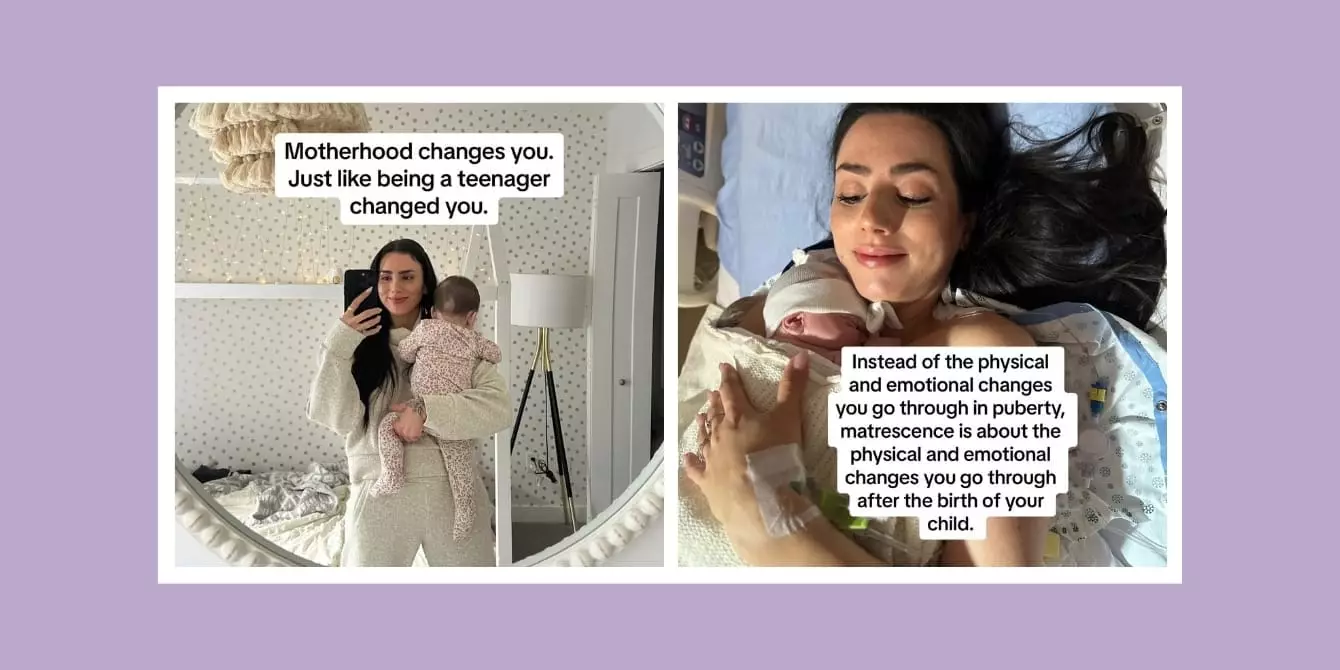The experience of becoming a mother is often cloaked in a myriad of emotions, a transformative phase termed matrescence. Much akin to adolescence, which marks the turbulent transition from childhood to adulthood, matrescence signifies the profound changes that a woman undergoes in body, mind, and identity after childbirth. This term encapsulates the struggles and growth a mother experiences, illustrating that giving birth involves more than just the arrival of a new life; it also encompasses a rebirth of the mother herself.
In essence, matrescence includes not just the overt physical changes—weight fluctuations, hormonal upheavals, postpartum recovery—but also a standstill of one’s identity. Mothers find themselves grappling with emotional turbulence, akin to those teenage years filled with uncertainty and self-discovery. The joy of nurturing a new life often coexists with feelings of inadequacy and confusion about one’s role in the world. This duality of joy and struggle embodies the depth of matrescence, shredding the veneer of bliss often portrayed in societal narratives about motherhood.
The Turbulent Waters of the Motherhood Journey
Hormonal shifts during the postpartum period can feel reminiscent of teenage mood swings. Suddenly, emotions surface like waves, with moments of elation interrupted by bouts of anxiety or sadness. Amidst midnight feedings and diaper changes, the familiar feelings of adolescence might resurface: navigating friendships, reconciling priorities, and reshaping relationships. Whereas adolescence involves the formation of identity in social contexts, matrescence challenges mothers to redefine who they are both as individuals and as caretakers.
Friendships face a significant impact during this period; connections with peers can become strained or evolve altogether. The new mother might find companionship in those who share similar experiences, fostering new relationships while navigating the delicate balance of existing ones. This reshaping can lead to enriching connections but can also deepen feelings of isolation if one feels disconnected from the life left behind.
Normalizing the Shift: A Shared Experience
The relief that comes from understanding matrescence is not to be understated. Recognizing that the emotional rollercoaster and profound self-doubt are part of a larger collective experience can alleviate the pressure many women face. In a society that often devalues the struggles associated with motherhood, it is paramount to acknowledge that this transition is entirely normal and well-documented, albeit not exhaustively studied.
Normalizing these experiences leads to better conversations around mental health and emotional well-being in motherhood. The awareness that this stage has an identity—matrescence—serves as a rallying call for women to come together, share their experiences, and support one another through what can be an overwhelming yet poignant chapter of life.
Ultimately, matrescence embodies the significant, multifaceted journey of motherhood, filled with challenges that rebirth a woman’s identity while nurturing new life. Embracing matrescence can transform the narrative surrounding motherhood from one of isolated struggle to a communal celebration of the profound growth inherent in this beautiful recalibration of self.

